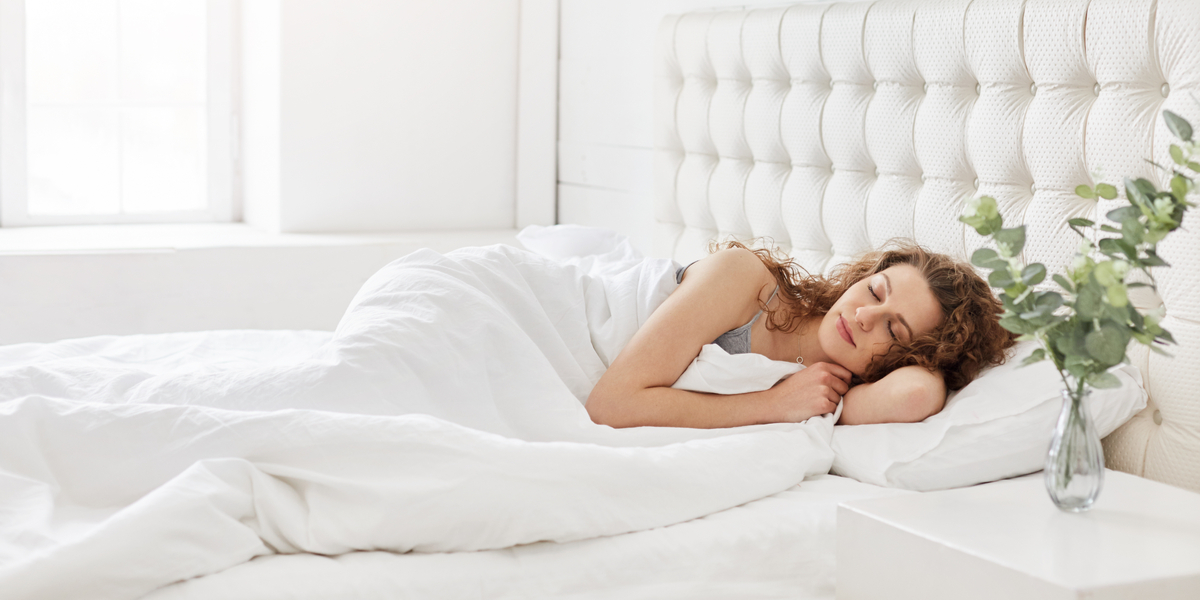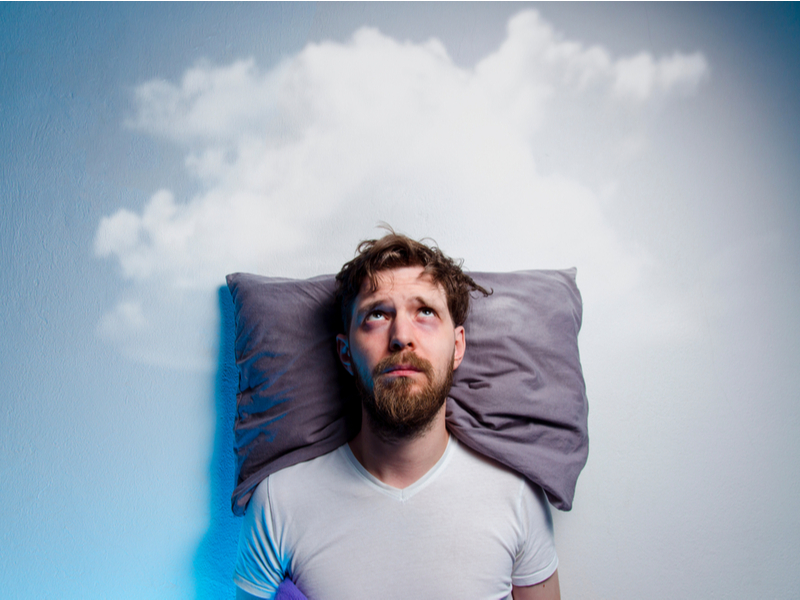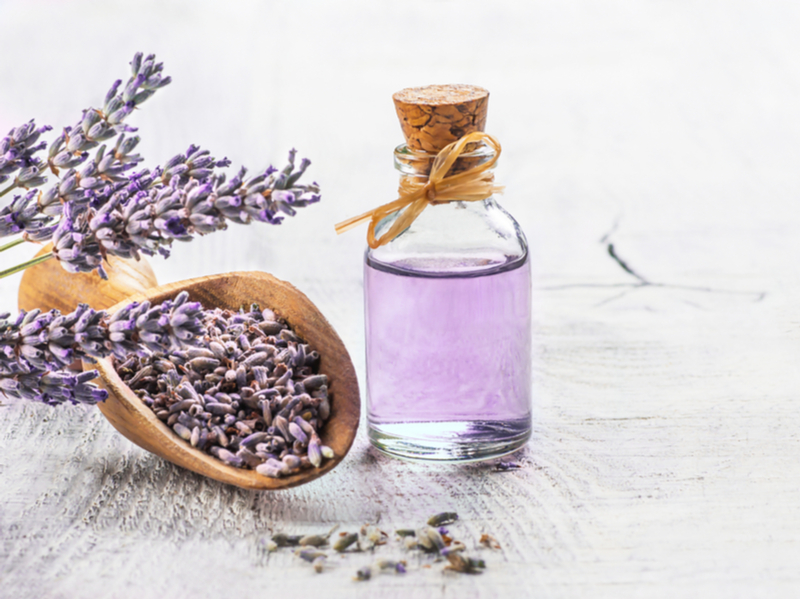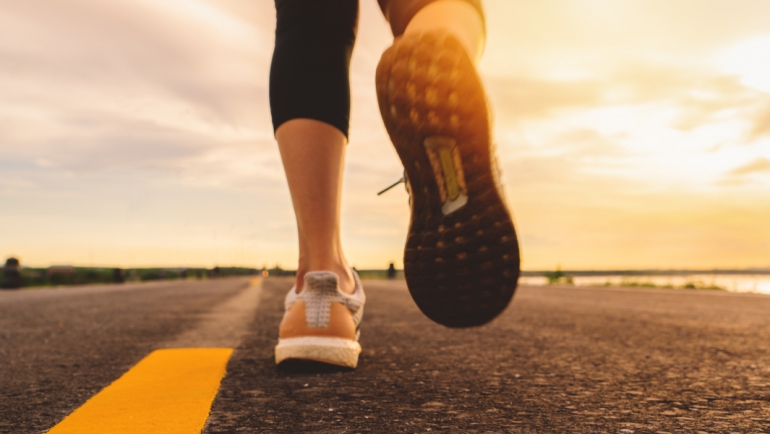6 Natural Sleep Aids for Insomnia

About 35% of American adults have trouble falling asleep and staying asleep despite the presence of natural sleep aids. Irregular sleeping patterns are common but the rise in technology seems to have worsened insomnia and other sleep disorders.
Insomnia can be mild and manageable. However, for others, it can be a life-threatening condition that prevents them from productivity or any strenuous activity. In any case, we all want a good night’s sleep. This is where natural sleep aids come in.
Effects of Insomnia
As medical technology has advanced, these aids have also improved throughout the years. Chronic insomnia can have serious effects on the body if not taken seriously. Early diagnosis and remedy can also help manage it.

Among a list of negative effects sleeping disorders can cause is increase the risk of depression and high blood pressure. It could also affect the overall quality of life as people who suffer from them tend to feel generally low energy levels and are more prone to fatigue.
Chances of accidents may increase due to the impairment of motor skills.
Sleep helps the body and brain maintain proper function. Good sleeping habits and practices are great, but sometimes they aren’t enough. This is why sleep aids for insomnia have become more popular in recent years.
But treatments are not a cure-all, and like with most health problems, addressing the root cause is better than a band-aid solution. In case you’re thinking of starting on something to help you rest better, here’s a list of possible options.
What Causes Insomnia
There are a lot of factors that may cause irregular sleeping patterns. Chronic insomnia is usually a result of stress, habits, or a fast-paced lifestyle that disrupts sleep. Treating insomnia can be tricky. It may take up to years to resolve the underlying causes.
According to experts, the most common causes of sleep irregularities are stress and anxiety, fluctuating work or travel schedules, poor sleep habits, and even overeating at night.
Their common denominator? They usually disrupt the body’s circadian rhythm. This rhythm is your body’s internal clock that guides the sleep-wake cycle as well as metabolism and temperature.
When external factors disrupt this 24-hour cycle, insomnia can develop. With stress, you may have unaddressed concerns at work, in school, about your health, finances, or your personal relationship that keeps you up at night. Trauma can also play a part in this.
Jet lag from air or sea travel, working a late or early shift, or frequently changing your sleep schedule can also hinder you from getting the proper rest your body needs.
Taking random naps throughout the day, stimulating activities right before bed, sleeping with a gadget on, and even eating right before bed is only a few examples of poor sleeping habits Overeating may cause heartburn, a backflow of acid and food from the stomach into the esophagus after eating. This may prevent you from sleeping comfortably.
Medical conditions or the use of certain drugs can also increase the chances of developing chronic insomnia. Treating the medical condition may help improve sleep, but insomnia may persist after the medical condition improves.
The Problem with Chemical Sleep Aids
Sleep medications called sedative-hypnotics are millions of Americans saving grace for a good night’s sleep. Sleeping pills can help with your insomnia but they are not designed for long-term use. They could also be dangerous if not used properly.

There are three common types of sleeping aids: Melatonin-receptor agonists, Benzodiazepines, and Nonbenzodiazepines. Depending on the dosage and strength of the pill, these can be available over-the-counter or only availed with a doctor’s note.
Melatonin-receptor antagonists target melatonin receptors in the brain. The pineal gland secretes the hormone melatonin at night. Usually associated with the sleep-wake cycle, melatonin also influences puberty development and memory control.
MRA pills interact with the receptors by stimulating them to produce more of the sleep hormone. Generally, these are sleeping aids with lesser risks. They are not habit-forming either.
Another type of sleep pill is benzodiazepines. Its chemical components reduce nerve activity and promote sleep.
This type of pills can be habit-forming and may cause daytime drowsiness. They may also be dangerous if combined with certain painkillers.
Nonbenzodiazepines are a much milder version of benzodiazepines. They don’t last as long in the body and contain less harsh side effects. Though they still pose drowsiness and potential for dependency.
The thing is, all prescription sleeping pills have side effects. They may vary according to dosage, ingredients, and how often you take them. Some of these side effects include prolonged drowsiness, dry mouth, migraines, grogginess, and stomach discomforts.
Natural Sleep Aids
Want to ditch the harsh chemicals in over-the-counter drugs? Natural sleep aids could be your best shot. Sleep aid supplements are commonly found in health stores and grocery shops. Some of the most popular natural sleep aids are teas, balms, essential oils, tinctures, and softgels.
Research has shown lifestyle and habits form a good sleeping pattern. Sleeping aids for insomnia should be short-term solutions while addressing the root cause of your sleeping problems.
Natural sleep aids could be an ideal option for this if you want to lessen the risk that drugs pose to high-functioning organs like the liver and kidneys. While most herbal and natural products are generally harmless, some can have adverse side effects. Be sure to do your research well before opting for an alternative sleep remedy.
It is also important to note that the FDA does not regulate dietary supplements like natural sleep aids. Talk to your attending physician for safety’s sake.
Cannabidiol
An active cannabinoid found in hemp plants is cannabidiol or CBD. It is non-psychoactive in nature so this all-natural compound won’t get you high at all. CBD oil for sleep can help with insomnia by calming and relaxing users enough to fall asleep and stay asleep.

Thanks to CBD’s anti-inflammatory properties, restlessness due to discomfort or pain could be alleviated. Well enough for the patient to sleep throughout the night.
The best part? CBD is non-drowsy. Take and enjoy it at any time of the day.
Without sedative effects, CBD targets the source of discomfort. It helps soothe fraying nerves and other symptoms of anxiety to make users relax. There are also many ways to take CBD including oil tinctures, softgels, topicals, and even sweet gummy candies.
Melatonin
As mentioned before, melatonin is a hormone your body produces naturally. It signals the brain that when bedtime is nearing. Melatonin levels usually rise in the evening and lower in the morning. This would explain why we sleep at night and tend to be more productive by day.
Melatonin supplements have fast become a popular natural sleeping aid. People who suffer from jet lag tend to have their melatonin cycle disrupted. The supplement may help compensate and let users take good long rest.
Moreover, this wonder hormone can help night shift workers to sleep better in the daytime. It generally decreases the amount of sleep needed but maximizes the duration of the sleep-wake cycle.
In other words, while a full 8-hour sleep is still needed, melatonin users will not feel the need to sleep longer even when their circadian rhythm has been interrupted.
Lavender
One of the most popular plants throughout the world, lavender is well-known and loved by many. With its pretty purple flowers and aromatic smell, it has become a household staple. It has many uses, among them is its believed ability to enhance sleep.

Many use lavender essential oil before bed. They either inhale via small vials or put a few drops in their humidifiers for it to permeate the air. In a study conducted, lavender’s calming effects greatly improved the sleep quality of young individuals.
An olfactory stimulus may help the elderly feel better rested. Aromatherapy is a good option for this. Compared to conventional sleep medication, natural herbs like lavender are a better option for those with a frail immune system.
Lavender is well-known and used worldwide. Although, more research is definitely needed to prove its sleep benefits. There is also no danger or abuse or dependency when using this versatile plant.
Glycine
Recent studies show that the amino acid glycine could help improve sleep quality. Glycine partially lowers the body’s temperature right before bedtime. The reduced temperature signals the body that it’s time to sleep.
In another study, a small group of people was given a placebo pill and another group was given 3 mg of glycerin. The latter was found to feel less fatigue he morning after. They also reported a surge in energy levels throughout the day.
Glycine is available in pill or powder form. They can be taken anytime in the day you deem necessary. Though experts advise that no more than 31 grams should be consumed daily.
The good thing? This amino acid is also present in many foods. It could be in your fridge right now! Food like meat, eggs, fish, beans, poultry, green leafy vegetables, and fruits like kiwis and bananas are rich in this nutrient.
Magnesium
Crucial for brain and heart health, magnesium is a mineral that helps keep the body in good shape. In addition to this, a study showed that it can relax the mind and body enough to fall into a quiet sleep.

Its ability to stimulate the production of melatonin is also helpful in aiding sleep for insomniacs. Experts also believe that insufficient levels of magnesium in the body could be linked to sleep irregularities.
Thanks to its calming effects, this mineral is popular among multivitamin supplements. It is also said to have calming effects for those suffering from anxiety.
Though many people incorporate magnesium in their daily regimen, more study needs to be done on its efficacy and effectiveness.
L-Theanine
L-Theanine (delta-glutamylethylamide) is another amino acid. It is well-known as a natural sleep aid commonly found in green teas. Mothers use L-Theanine as a relaxing agent to soothe their anxious or hyperactive children throughout history.
In one conclude research, this amino acid improved sleep for ADHD children and helped with treating anxiety. Even in relatively high doses, L-Theanine does not seem to have any adverse side effects. It could explain why many are now opting for tea as part of their herbal therapy.
Avid tea drinkers also frequently attribute the calming effects of green tea to this amino acid, According to some, it helps them calm down and unwind after a long day at work or in school.
A cup before bed will usually aid in settling their stomachs enough for a good night’s rest. Still, it is important to note that the FDA is yet to approve and regulate natural sleeping aids. Be sure to do your due diligent research before starting on anything.
Sleep is crucial to our overall well-being and all of us deserve a good, long rest after a day of hard work.
Is CBD Legal? Hemp-derived CBD products (with less than0.3 percent THC) are legal on the federal level. Moreover, these statements have not been evaluated by the Food and Drug Administration. This product is not intended to diagnose, treat, cure or prevent any disease and products that have not been FDA approved. Likewise, you must be at least 21 years old to purchase these products. Talk to your physician or medical doctor for additional information.



